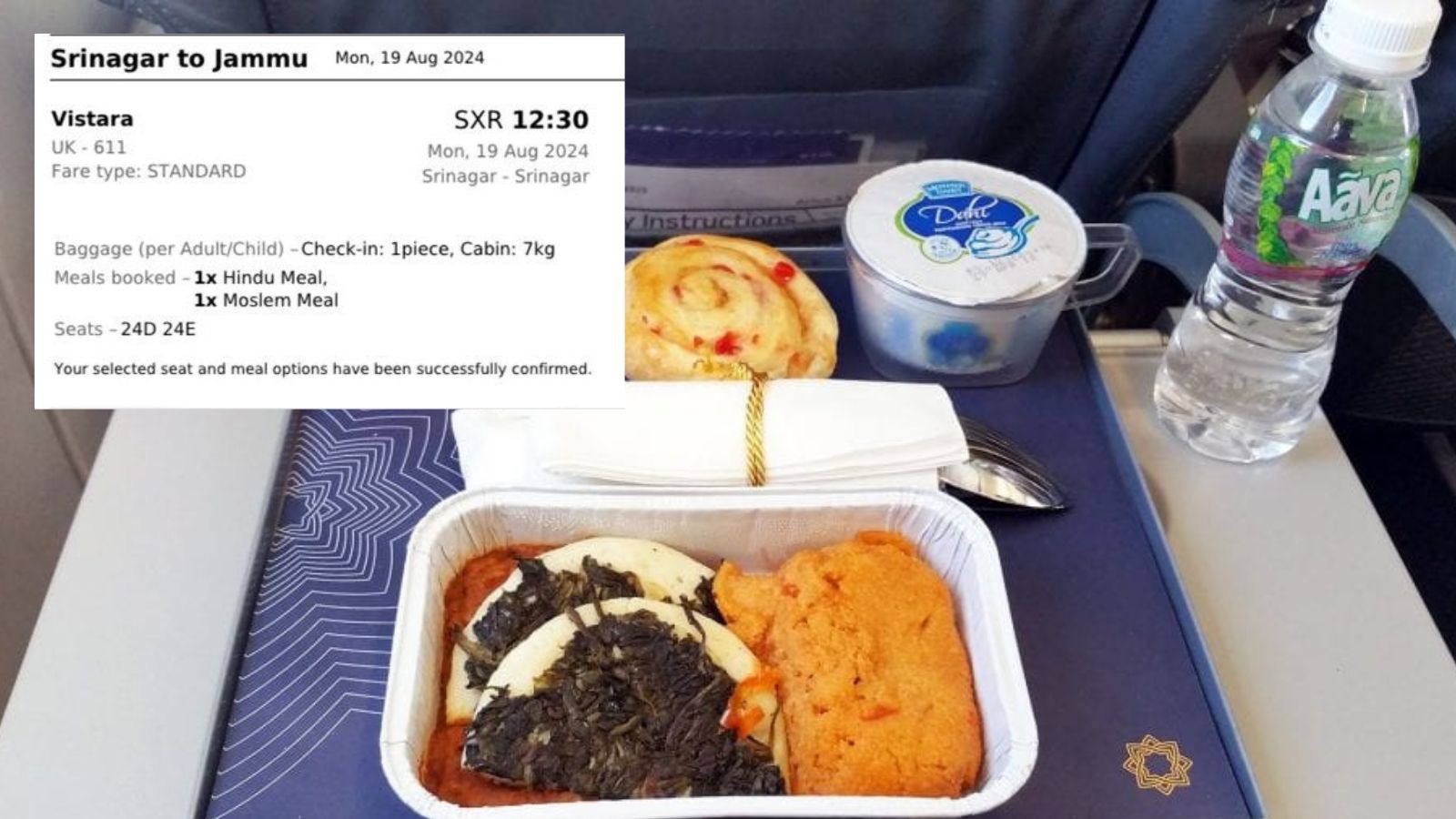[ad_1]
Hello @airvistara, why the hell is vegetarian meal called “Hindu meal” and chicken meal called “Muslim meal” on your flights? Who told you that all Hindus are vegetarian and all Muslims are non-vegetarian? Why are you thrusting food choices on people? Who authorised you to do… pic.twitter.com/46w4avU7Vs
— Aarti Tikoo Singh (@AartiTikoo) August 27, 2024
Singh’s post quickly gained traction online, with many users echoing her concerns. She expressed disbelief that the airline would associate specific meals with religious identities, asking, “Who told you that all Hindus are vegetarian and all Muslims are non-vegetarian?” Her remarks were accompanied by a screenshot of her booking, which included both meal options for a flight from Srinagar to Jammu, a gesture she described as a way to challenge the airline’s practices.
The controversy has sparked a broader debate on social media, with responses from various quarters. Some users pointed out that these meal classifications are not unique to Vistara but are part of a standardized system used across the aviation industry. Sanjay Lazar, CEO of Avialaz Consultants, explained that a “Hindu Meal” (HNML) does not necessarily mean a vegetarian meal but could be a non-vegetarian meal that is not Halal. Conversely, a “Moslem Meal” (MOML) is a non-vegetarian meal that is Halal. He noted that these meal codes are internationally recognized and serve to streamline meal requests across different airlines.
Madam it’s always good to check first !
FYI in general aviation parlance, a Hindu Meal (HNML) is NOT necessarily a Veg meal – it could be a Non Veg meal that is not Halal.
Similarly a Moslem meal (MOML) is a Non Vegetarian meal that is HALAL.
A Vegetarian meal, on the other… pic.twitter.com/kCfHzykliy
— Sanjay Lazar (@sjlazars) August 27, 2024
Sanjiv Kapoor, former CEO-designate of Jet Airways and an aviation industry veteran, echoed this explanation. He clarified that these codes are standardized by the International Air Transport Association (IATA) to help airlines manage dietary preferences uniformly. Kapoor acknowledged that while these codes may be outdated and occasionally confusing, they are used globally to prevent ambiguity.
Vistara’s website does not use religious terms for meal classifications. Instead, it offers a range of vegetarian options including the “Vegetarian Vegan Meal” (VGML), “Vegetarian Jain Meal” (VJML), and “Vegetarian Lacto-ovo Meal” (VLML), each catering to different dietary needs without religious connotations.
The debate highlights the complexities of meal labeling in aviation and the ongoing need for clarity and sensitivity in how dietary options are presented to passengers.
[ad_2]
